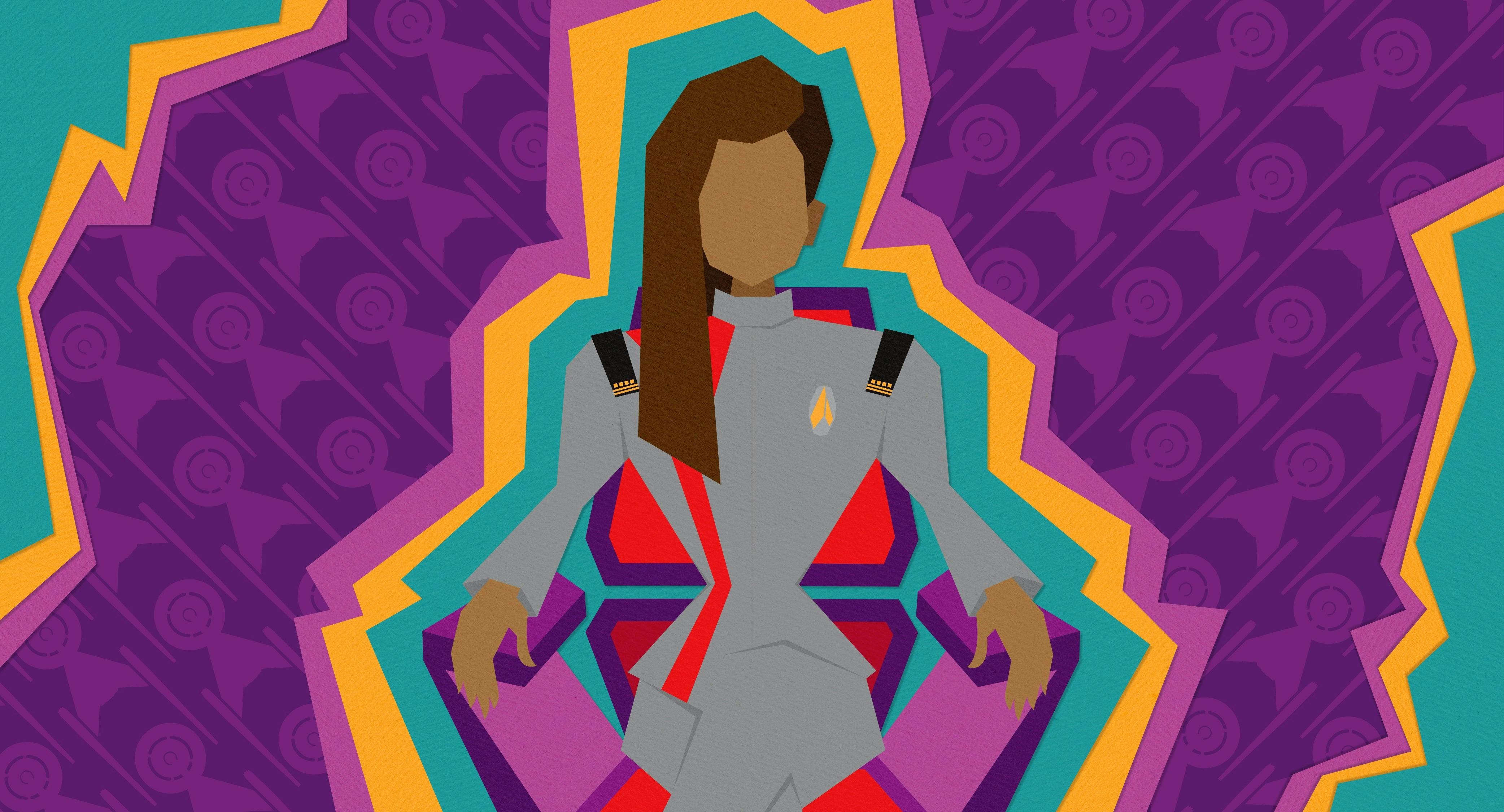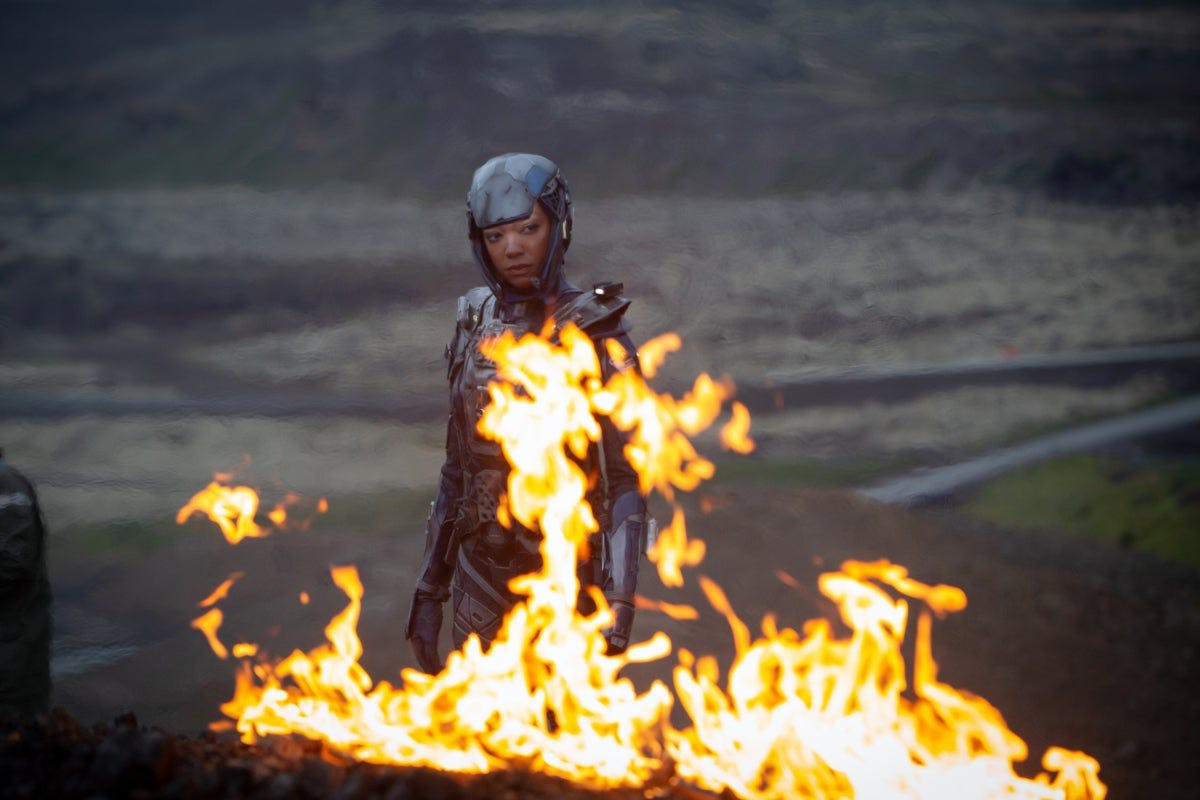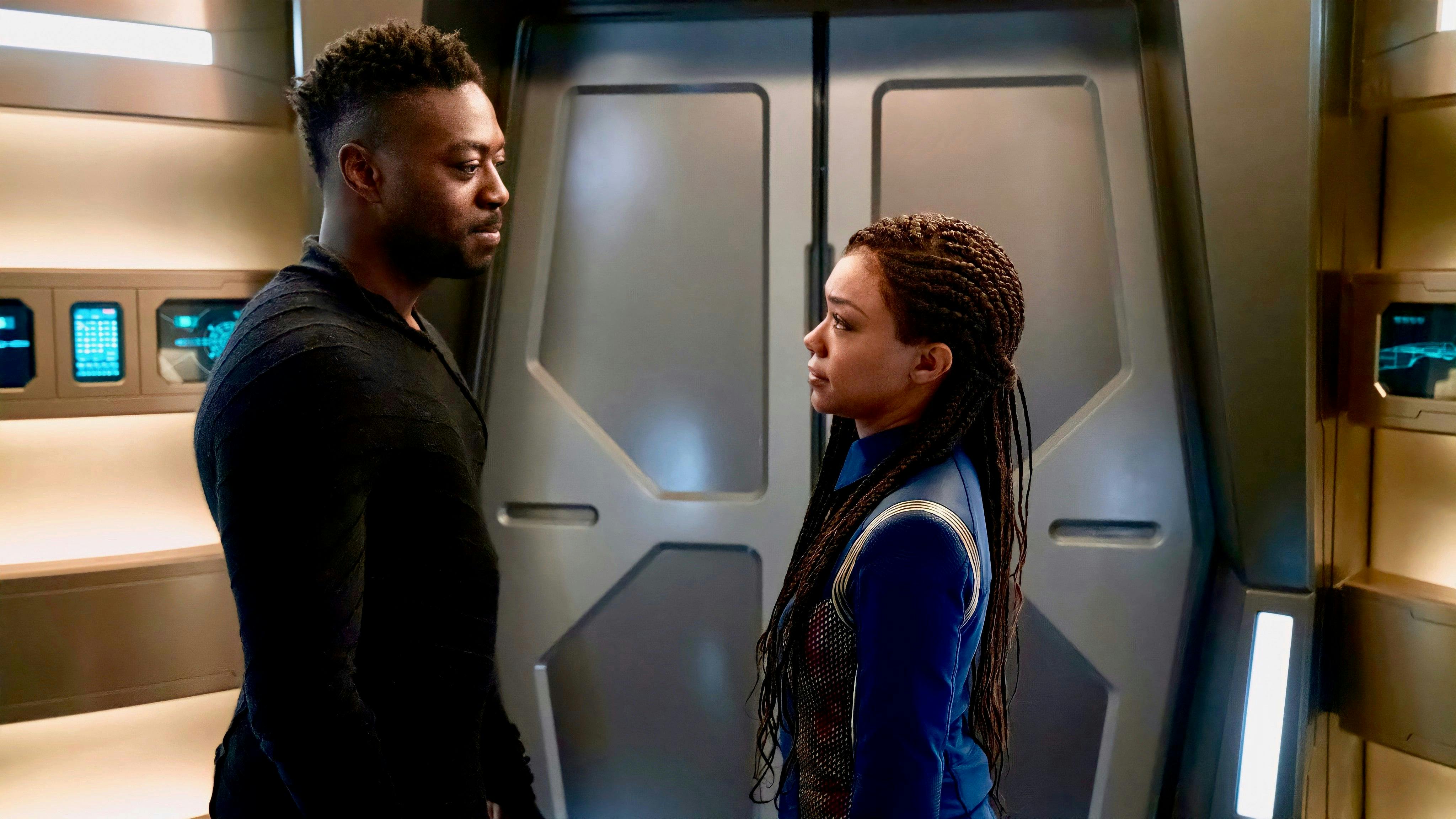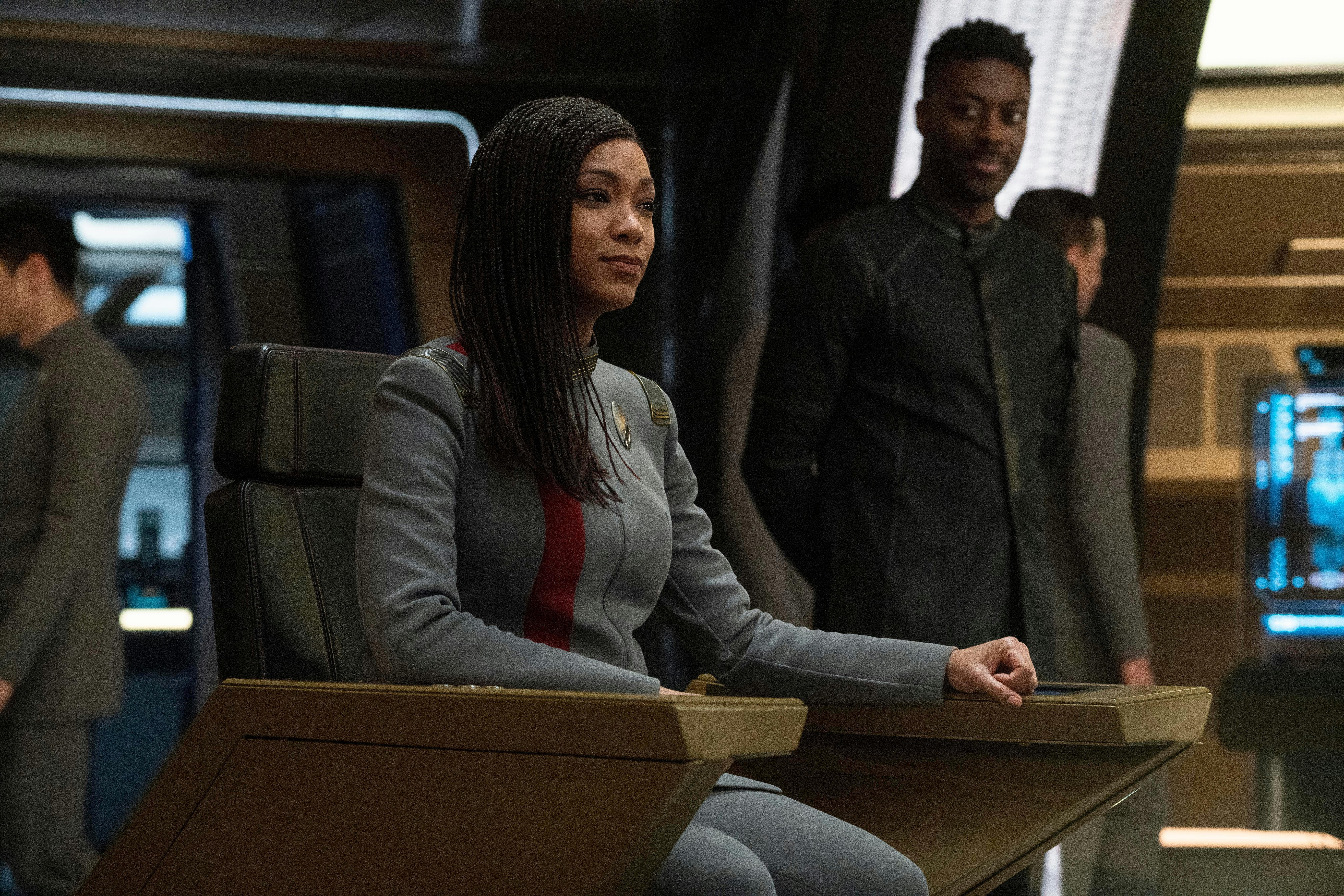Published Feb 15, 2022
Yes, Michael Burnham Can Have It All
Captain Burnham is proof that Strong Female Characters don't have to be miserable.

StarTrek.com
This article was originally published on February 11, 2021.
"I am reflexively supportive and what is that about? ... I'm overcompensating." — Michael Burnham, “That Hope Is You, Part 1”Michael Burnham’s psychological breakthrough amidst a confessional stream of consciousness rant in “The Hope Is You, Part 1,” is not only entertaining to watch, but it informs so much of Burnham’s tumultuous journey throughout the season. As fate would have it, this epiphany arrives just as she is thrust into the perfect situation for her to confront the issue. For the first time in her life, Burnham has to drill down into her identity, methodology, and values when the expectations and regulations of others can’t be her container. Given this, it’s no wonder that her reunion with the Discovery crew was less than harmonious at times.

StarTrek.com
Burnham’s origin story is as hardscrabble as one would expect from a sci-fi badass. Klingon soldiers attack her home, leaving her an orphan. She is then raised isolated from humanity on Vulcan, our favorite “conceal don’t feel” society in the Trekverse. She grows up and distinguishes herself first as a sharp and focused officer and then as Starfleet’s first mutineer. Over the first two seasons, she suffers through familial strife, professional betrayal, and a deliciously toxic love affair with an aggressively handsome Klingon sleeper agent. The third season could have used all of those past story elements to erect an exoskeleton of the kind of boilerplate badassery that we’ve come to associate with Strong Female Characters (™) in fiction. Instead, it gives Burnham license to emote even more readily than she has in the past two seasons. It allows the weight of her sacrifice at the end of season 2 to really manifest in the way she frequently sheds tears when she is overwhelmed, in the ferocity of her convictions even when they run counter to the will of Starfleet and Captain Saru, and the way she leads and loves her imperfect found family aboard the Discovery. Even when she is trying to act unaffected and unflappable in “Unification III,” a reunion with her mother yanks all of her Strong Female Character self-possession away and forces her to have a ‘come to Starfleet’ moment in a room full of people. A well-worn trope for Strong Female Characters is that for them to stand strong, they must stand alone. Burnham could have been ‘empowered’ beyond the need for any romantic intimacy. After all, there are definitely some showrunners who think that the mere presence of a romantic relationship diminishes a female character’s viability as a heroic figure. Michael, who has always worn sacrifice and trauma like a cloak, could have easily gone down this bleak path. Fortunately, the creative team on Star Trek: Discovery decided to go a more refreshing route with their protagonist.

StarTrek.com
Enter Cleveland “Book” Booker, a dashing but guarded Kweijan courier on a righteous mission of ecological justice. Their initial meeting is a contentious standoff that leads to a brief betrayal by Book and ends with a Butch-and-Sundance-style chase on a barren planet. It’s the stuff that series-spanning ‘will-they-or-won’t-they?” situationships are made of. Instead, Book and Burnham enter a mutually respectful, high adrenaline adult relationship where he presumably served as her guide to the 32nd century, and in turn, her leadership inspires him to broaden the scope of his mission by partnering with her and Starfleet. Female characters often serve as window dressing or dispensers of emotional beats in a man's journey. But on Discovery, even when Burnham found herself in earlier seasons contending with her male superiors like Captains Lorca and Pike, or her larger-than-life adoptive father, Sarek, or her little brother, whose meta status as an icon could have easily overshadowed her character, she’s never felt decentralized in the narrative. Burnham grappling with her place in Starfleet while challenging the institution to do better and making space for love in her life expands on this trend. Michael Burnham is a change agent. She sees a way forward even when the path is foggy. Despite, or maybe because of, her early stumbles, she is exactly who she needs to be to take the captain's chair in the third season finale, (a path that puts her in excellent company).

StarTrek.com
Clearly, her struggles aren’t likely to end just because she has her dream job, a boyfriend, and quarters decorated with the spoils from their shared adventures. But as the credits roll on “The Hope Is You, Part 2,” Michael Burnham's life no longer feels like one note of suffering and loss played on a loop. It sounds like a symphony of low notes and high notes, with every tempo and melody a human heart can play. Despite the frequent peril and unique challenges she faces, Michael Burnham, at the end of Season 3 of Discovery, is finally at a place of abundance.
Sonequa Martin-Green Opens Up at The Paley Center
Crystal Sparrow (she/her) is a writer in transition currently training to become a Voice Over artist. She has written for IGN, Looper, The Verge, Blavity, and other publications. She can be found at wordyblerd.com and at wordyblerd on Twitter and YouTube.
Star Trek: Discovery currently streams exclusively on Paramount+ in the U.S. Internationally, the series is available on Paramount+ in Australia, Latin America and the Nordics, and on Pluto TV in Austria, France, Germany, Italy, Spain, Switzerland and the United Kingdom on the Pluto TV Sci-Fi channel. In Canada, it airs on Bell Media’s CTV Sci-Fi Channel and streams on Crave. Star Trek: Discovery is distributed by ViacomCBS Global Distribution Group.
